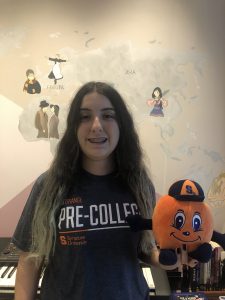Course Overview
The main goal of Global Encoutners (ANT 185) is to introduce students to the relationship between culture, power and identities in the global world and to examine how anthropologists have been grasping, understanding and writing about these issues in diverse social and cultural settings. In order to critically approach and study peoples and cultures around the world, we will especially focus on the processes that have been conceptually grouped under the rubric of social inequality and violence.
This class is divided into two main parts. In the first part, titled “Culture/Power/Identities” we will draw on a number of ethnographic writings and films that focus on the basis of social inequality and relationships shaped by differences of race, class, ethnicity, generation and gender. The second half of class, broadly titled “Global Assemblages,” will address numerous effects that global processes have had on peoples and cultures of the world. Here we will investigate the phenomena such as neoliberalism, tourism, organ trafficking, commercial surrogacy and migration, and we will critically examine the emerging forms of social inequality that these global processes generate. We will end the course by exploring how the knowledge gained in class can help us make sense of social inequalities and forms of violence revealed and deepened by COVID-19.
This course is open to Syracuse University undergraduates.
All students who successfully complete the course will receive a Certificate of Completion and have the opportunity to request a Syracuse University credit transcript.
Course Objectives
- Define, understand and use the key anthropological concepts (such as culture, society, power, cultural relativism, ethnocentrism, globalization, etc.) in writing assignments and section discussions.
- Understand anthropology’s methodological tools, especially ethnography, and think critically about what kind of knowledge this method contributes to.
- Understand the range of variability of cultures in the global world.
- Think critically about the nature of violence and social inequality in different historic and socio-cultural settings.
- Critically assess and compare class readings according to the theoretical arguments put forward in lecture and recitation.
- Write research papers on contemporary issues, utilizing the knowledge of core concepts of cultural anthropology discussed in class.
- Demonstrate abilities to analyze, assess, and compare class materials through active participation in sections
Course Information
Course Prefix and Number: ANT 185
Format: On Campus (at Syracuse University)
Eligibility: Students must be of rising high school junior, or senior status – or a 2022 high school graduate.
Credit: 3
Grading: A-F
- Residential: $4,385
- Commuter: $3,530
Program rates are subject to change and will be approved by the board of trustees. Discounts and scholarships are also available.
Program Information
Summer College – On Campus: Experience what college is really like: take a college-level course, live in a residence hall, have meals with friends in a dining hall, and participate in activities and events on campus.
“…I believe Syracuse University Summer College is able to engage students worldwide by providing enriching experiences that won’t ever be forgotten.”
– Helenna C., Summer College – Online Student, 2021

Course Dates and Details
| Program | Course Dates | Class Time (EST) | Credit/Noncredit | Status |
|---|---|---|---|---|
| Summer College – On Campus | 2-Week Session III: Sunday, July 31 – Friday, Aug. 12, 2022 | MTWThF; 9 a.m.-1 p.m. | 3 credits | Closed |
Course Requirements
Required Textbooks and Supplies
Students should budget for required textbooks and supplies.
Typical Day
Tentative Schedule
Each day is composed of in-person lectures and engaged discussions (there are two days when students will take in-class exams). There are also several days when students are expected to watch films in the afternoon/evening, in addition to daily reading/writing assignments. There is also one “ethnographic exercise” they are expected to do.
When class is over, and on weekends, students can look forward to various Summer College – On Campus activities to meet and connect with other students! Check out our On Campus Experience page for more information!
Faculty Bios
Azra Hromadzic — Associate Professor and O’Hanley Scholar
The Maxwell School of Citizenship and Public Affairs
Degree: Ph.D, University of Pennsylvania, Philadelphia, 2009
Specialties: Political anthropology; ethno-political violence and post-conflict reconciliation; socialism and post-socialism; gender; youth cultural practices; social policy and welfare; aging, care, and responsibility; and the Balkans.
Azra Hromadžić is a cultural anthropologist with research interests in the anthropology of international policy in the context of state-making in postwar Bosnia and Herzegovina. Her book, Citizens of an Empty Nation: Youth and State-making in Postwar Bosnia and Herzegovina (University of Pennsylvania Press), is an ethnographic investigation of the internationally directed postwar intervention policies in Bosnia and Herzegovina and the response of local people, especially youth, to these policy efforts. The book was translated into Serbian in 2017 (Samo Bosne nema: Mladi i građenje države u posleratnoj Bosni i Hercegovini. Beograd: Biblioteka XX Vek).
Several years ago, Azra initiated a new project that ethnographically researches aging, care and social services in the context of postwar and postsocialist Bosnia and Herzegovina. She co- edited (with Monika Palmberger) a volume titled Care Across Distance: Ethnographic Explorations of Aging and Migration which is forthcoming with Berghahn Books.
